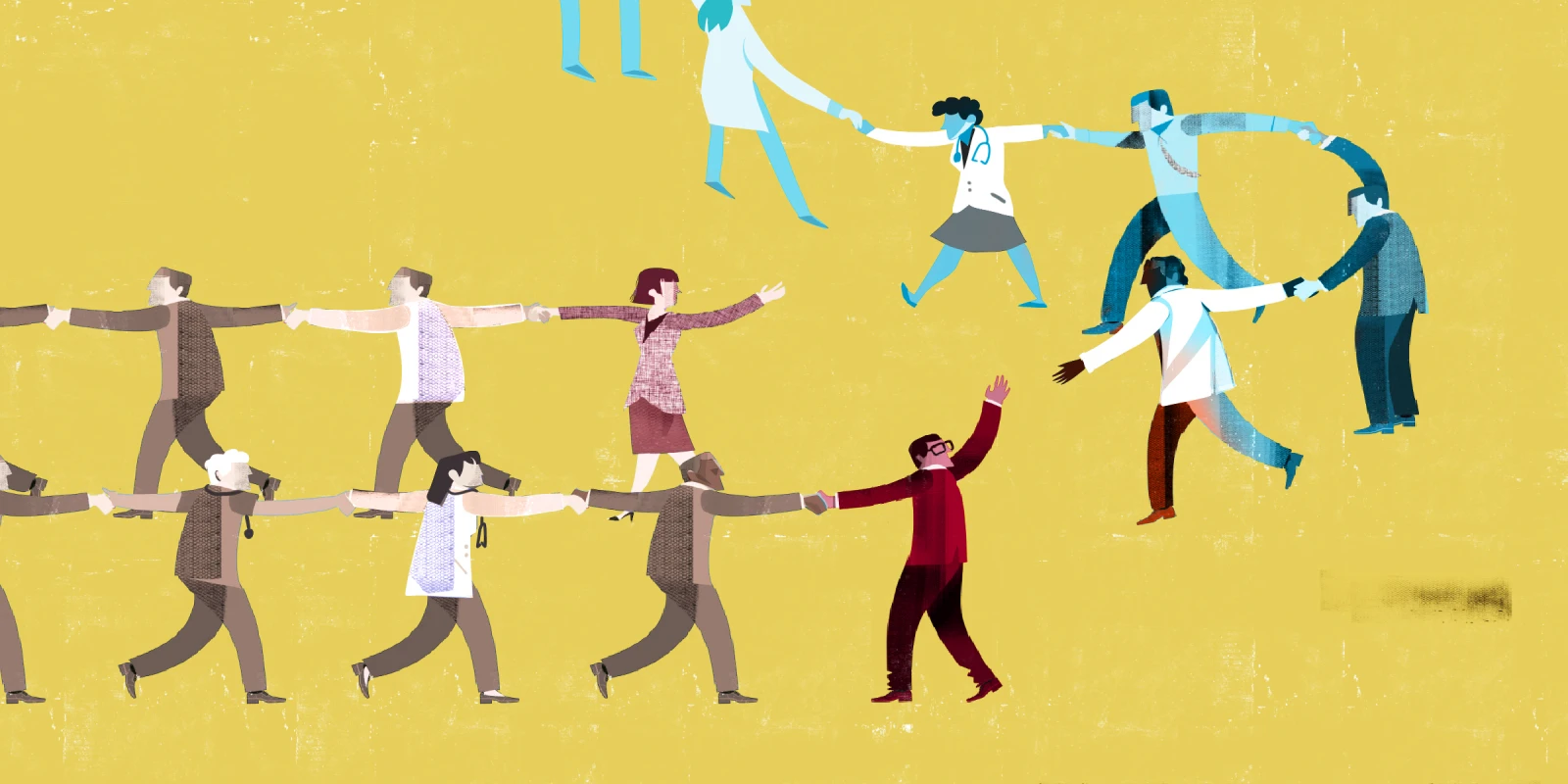“Beep!” The alarm goes off repeatedly at 5:30 a.m. and I wake up anxious and perspiring, not sure how this first day at work is going to turn out. I’ve been in this position a few times now, each time I have transitioned to a new role on my journey to becoming a neurologist: Whether it was preparing for my first dissection in the gross anatomy lab, going through each new rotation as a medical student, as a neurology resident treating underserved patients in Los Angeles, California, and now as an attending neurologist in New York. That feeling never quite gets old: butterflies in your stomach, the apprehension that you may not be good enough, the impostor syndrome, amongst a swirl of other jangling thoughts.
I’ve just completed my first year as an attending neurologist in New York and while there have certainly been ups and downs, I’ve grown tremendously and wanted to share what I have learned.
Some challenges are obvious. Oftentimes when people look at you, whether they are fellow physicians or if they are the patients, they may assume that because you’re “the newbie,” you may not have the experience needed to make good decisions. The truth is that when I came fresh out of my training, I was extremely up-to-date and familiar with the latest technology and guidelines in the various disciplines of neurology. For example, in vascular neurology, I trained to understand and interpret many perfusion images for stroke codes. Perfusion imaging is something that is becoming a critical piece of acute stroke management, and utilizing the various images to treat stroke is second nature to me. But for neurologists who did not train with computer-generated images showing patterns of cerebral blood flow, this new technology may be less comfortable.
Being on the cutting edge and bringing a fresh perspective can be a tremendous strength for newly minted physicians. This could not be more relevant to the rapidly expanding area of therapeutics in neurology, which has become quite staggering. Particularly in the last couple of decades, the number of medications used to treat conditions such as headaches and multiple sclerosis have multiplied. And even in the time I have been an attending physician, infusions for the treatment of Alzheimer’s disease have been approved by the FDA, which represents a new treatment pathway in a neurologist’s toolbox. As a result, I encourage new graduates to feel confident while also being proactive in learning more each and every day: You can avoid shortcomings by making a commitment to lifelong learning and continuing to read and upgrade your skills at medical conferences and seminars. You can strive every day to become better.
In fact, as younger physicians, we should embrace our comfort with technology, particularly as patients become increasingly comfortable with it as well. For example, telehealth is a feature that the COVID-19 pandemic has arguably made more widespread, and patients often use their smartphones for so many daily activities that physician appointments are a natural fit. Mobile phones have enabled us to access patient charts on the go, which presents more ways to be proactive about gathering and recording information. Advances in artificial intelligence, such as rapid stroke imaging that can be delivered to our phones, increase how fast we respond to emergencies. We should embrace these new technologies as a chance to help more patients who may not have access to us otherwise, and we can help our more experienced colleagues transition to providing this more patient-centered care.
Physician wellness is another area where, as new graduates, we can lend a new perspective. Oftentimes, older graduates trained in conditions where there may not have been duty-hour restrictions and as a result, they end up experiencing burnout earlier in their careers. And we all can find ourselves in this position. During this past winter, I was overwhelmed with higher levels of consults, and I ended up working many evenings until midnight before starting early once again the next morning. After talking to physician colleagues, I realized that I was experiencing symptoms of burnout and that I probably wouldn’t be able to last in the job if I kept up the intense schedule. Since then, I started introducing protected time in both my work and personal schedules for wellness, which has helped me stay passionate and energized at work. Even if you’re in training, even having a few minutes a day for a break, meditation, or exercise can be so valuable to preserving your mental health.
To be sure, being the newbie has its downsides. There were times where I was overwhelmed, burnt out, and challenged in ways my more experienced colleagues were not. But that being said, it’s still a wonderful sensation being new and being able to bring your skills and experiences to the table to help patients. Here’s to all the new graduates and a wonderful future ahead!
What advice would you give newbies? Share in the comments.
Vinod Ravikumar is a neurologist based in New York who is passionate about clinical medicine, research, and teaching. He can be found at his LinkedIn or on Twitter.
Image by Luciano Lozano / Getty







